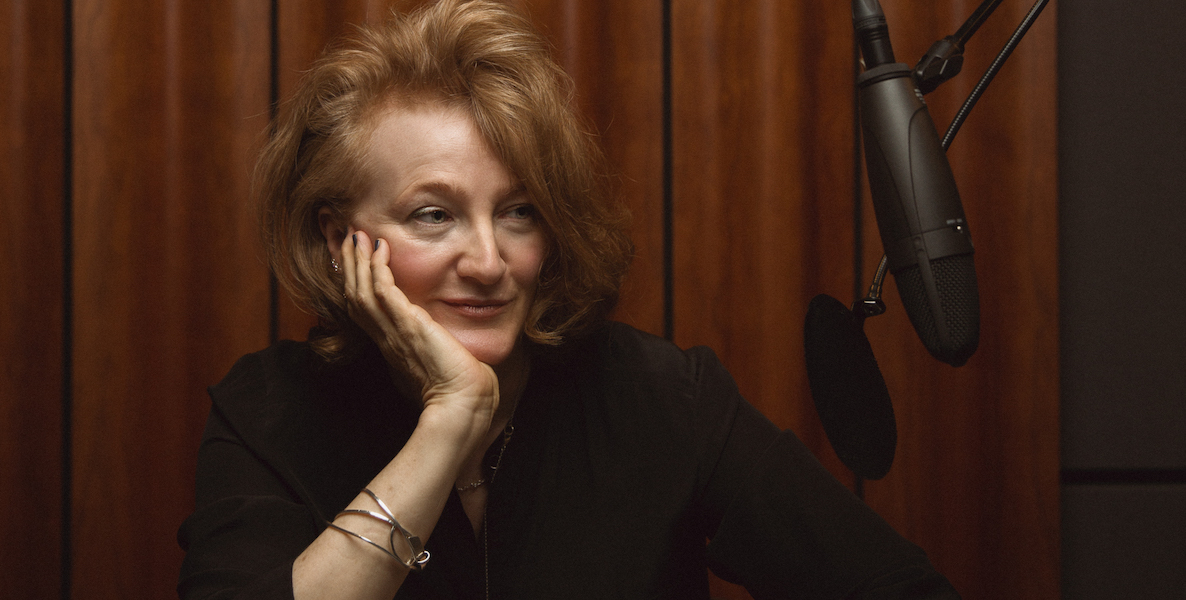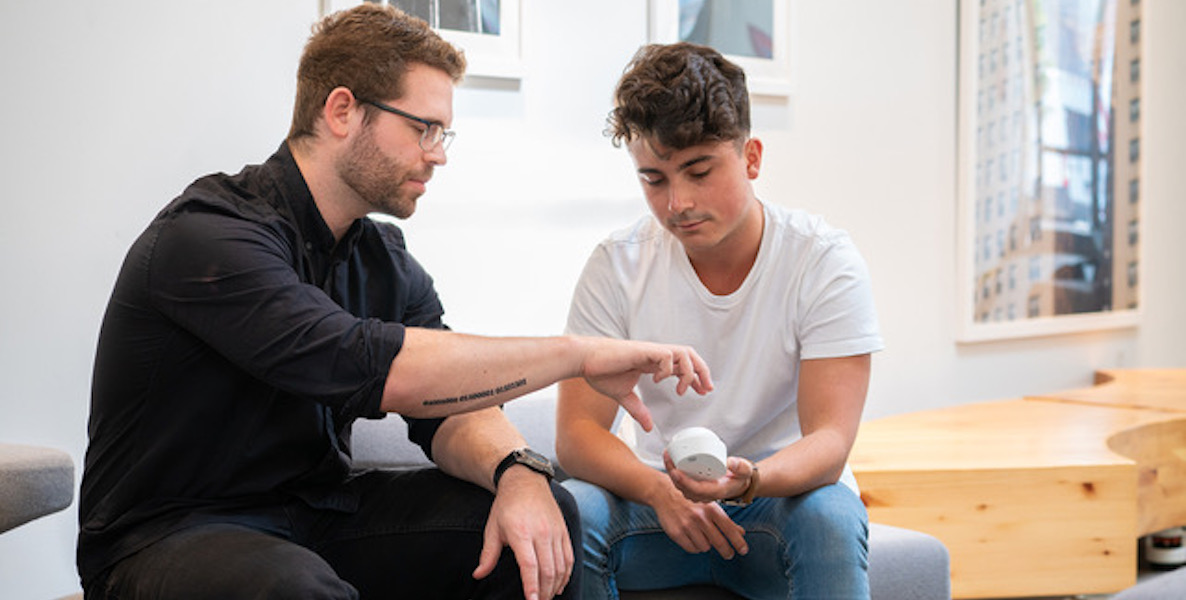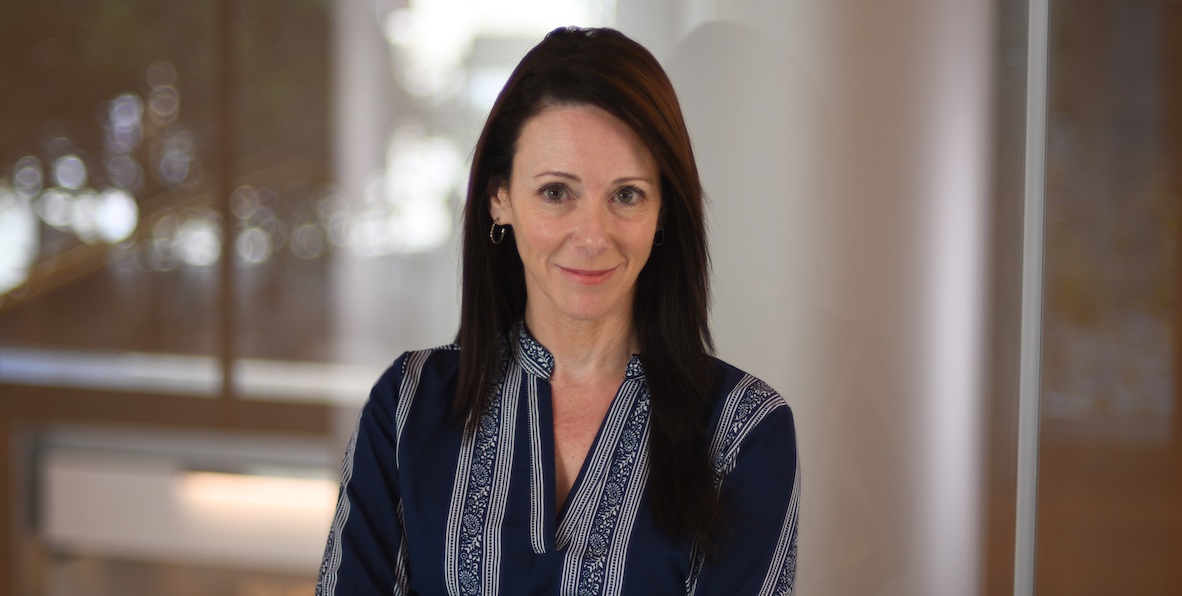Ever since Wall Street was founded in 1792, investing has had ominous undertones, conjuring images of greed and excess, pinstripe-clad white men at mahogany desks.
And for decades, the stereotype largely held true: Investing opportunities neither targeted, nor served, communities like women of color, young people, or those lacking major assets to play around with.
Catherine Berman is among the wave of leaders breaking that mold.
With a pedigree in traditional finance and a track record of launching successful startups, she is now the CEO and co-founder of CNote, an impact investment platform that invests in women, minorities, and low-income communities across America. To date, CNote’s investment products have a spotless record with zero losses.
Berman is one in a lineup of prominent leaders who will be presenting at this Wednesday’s second annual Total Impact conference, for which The Citizen is a media sponsor. Here, she shares her take on how investing can lead to significant financial returns—and even more meaningful social ones.
JP: What is CNote?
CB: We are a financial technology [fintech] company on a mission to close the wealth gap through financial innovation. We believe that technology, collaboration, and, frankly, humility can go a long way in creating a financial services industry that we’re actually proud of. CNote technology helps democratize impact investments.
JP: How so?
CB: When we think about democratization, we really think about things like ![]() making it very accessible. Accessible to us means things like no minimums—so if you look at our flagship product, you’ll see there’s no minimum on that, you can [invest] with a dollar. Accessible to us also means transparency around business models. We have no fees. So we’re not tacking on an additional chunk that is gonna be burdensome to folks who want to invest with their values. I think accessibility also means the onboarding experience and reduction of friction.
making it very accessible. Accessible to us means things like no minimums—so if you look at our flagship product, you’ll see there’s no minimum on that, you can [invest] with a dollar. Accessible to us also means transparency around business models. We have no fees. So we’re not tacking on an additional chunk that is gonna be burdensome to folks who want to invest with their values. I think accessibility also means the onboarding experience and reduction of friction.
For example, we could’ve created our product and had you sign up, send us back a 12-page document, fax back a signature, right? But we didn’t want to do that. We know that we’re dealing with wonderfully busy people who want to do good. And so how do we make it easier for them to invest with their values? We put it online and [have a] bank-level encrypted high security environment where investors can feel safe, where investors can feel they’ve entered a trusted platform, and also have the flexibility to toe-dip. You don’t have to put $3 million to try this out and you don’t even have to put it in for three years to try this out. And so all of those things to us equal accessibility and really help do what we are passionate about, which is democratizing this opportunity.
The Wisdom Fund is just a testament to that belief that if we do a better job investing in women, and specifically women of color, the product of that is so powerful.
JP: You have your first, or flagship, product, which invests in women, minorities, and low-income communities throughout the U.S., and has variable returns. Then you have your new Wisdom Fund, which is a fixed-income product, and invests specifically in women. Can you explain why investing in women is a top priority for CNote?
![]()
CB: Women don’t get enough venture capital, and that’s an important problem to solve. But I would argue the bigger problem is around access to capital for women doing small business, not venture-ready business. Those are the majority of businesses started by women, and that’s really the wealth creator for women in the U.S. That’s the problem we’re addressing with the Wisdom Fund. And when you invest in women, I would argue 9 times out of 10 you’re investing in something bigger than that woman. Because that woman will not only go about creating jobs in her local community, she will take it even a step further and really expand the power of her business. We see it again and again.
JP: Can you share an example of a woman CNote has been able to support, who’s done just that?
CB: One of the women we’ve invested in, Yahaira Caraballo, is such a great example because not only did she grow a local nail salon business in the South Bronx and start hiring people and creating jobs, but now she mentors other women entrepreneurs in the South Bronx. Another example is Cinde Dolphin, also a first-time entrepreneur [her product is Kili Medical Drain]; she ended up including women on the base of Kilimanjaro as part of her supply chain so that she could fund them so that those women would have new sources of income to send their daughters to school.
JP: That’s amazing!
CB: I have so many of these stories. And the Wisdom Fund is just a testament to that belief that if we do a better job investing in women, and specifically women of color, the product of that is so powerful. Almost inexplicably powerful. But we need to see more of it.
The bigger problem is around access to capital for women doing small business, not venture-ready business. Those are the majority of businesses started by women, and that’s really the wealth creator for women in the U.S.
JP: Do you invest directly in these women and their companies?
CB: We work with Community Development Financial Institutions, or CDFIs. The CDFIs have been around for over 20 years, [with] incredibly inspiring impact and very strong financial performance. There are over 1,000 CDFIs across the U.S., and when we have CDFIs that are interested in joining our portfolio, we put them through our three-part diligence process, and then once they’re in our portfolio, we work with them on driving that flexible investment. We currently work in over 37 states and have CDFIs that run the gamut: CDFIs working on the environment, CDFIs working on food deserts, CDFIs funding women and minority businesses. It’s tremendous, the breadth and depth of impact that these organizations are obviously delivering. And then we get to play that partnership role to make sure that investors are exposed to the high-performing, high-impact CDFIs, and that CDFIs are getting access to capital and exposure.
JP: Let’s talk about the Total Impact conference. You probably constantly get invites to events—what made Total Impact stand out to you?
CB: Well I have a love affair with Philly. I remember years ago, touring the east coast and really just loving the energy and the history behind Philadelphia. I also know that the wealth gap is felt prominently in Philadelphia, and that gentrification is a real and salient issue in the city. And so for a lot of reasons I’m attracted to both the city and what’s happening in the city.
![]()
And I think as it relates to Total Impact, I have tremendous respect for those thought leaders and organizations that are trying to move not just the conversation forward, but action forward. We’ve all been talking about this for a while; I would argue that many of those who are participating, have been working on this for years. But I do think we’re seeing a change from conversation to action. And how do we speed that process up? And how do we do it thoughtfully? And how do we do it collaboratively?
I’m a big believer that we’re only going to move impact investing forward if we get new people in the room. Fresh perspectives in the room. And new people caring about this. And so clearly it’s one of the reasons we think democratizing all of this is so very important. Where are the community voices, where is the varied and diverse sets of ethnicities and ages and opinions at the table? Getting to participate in all of that and then really being part of the solution, not just the conversation, is exciting to me.
Wednesday, May 1-2, 8 am-5:30 pm, discounted tickets for Citizen readers here, Convene, 30 S. 17th St.






